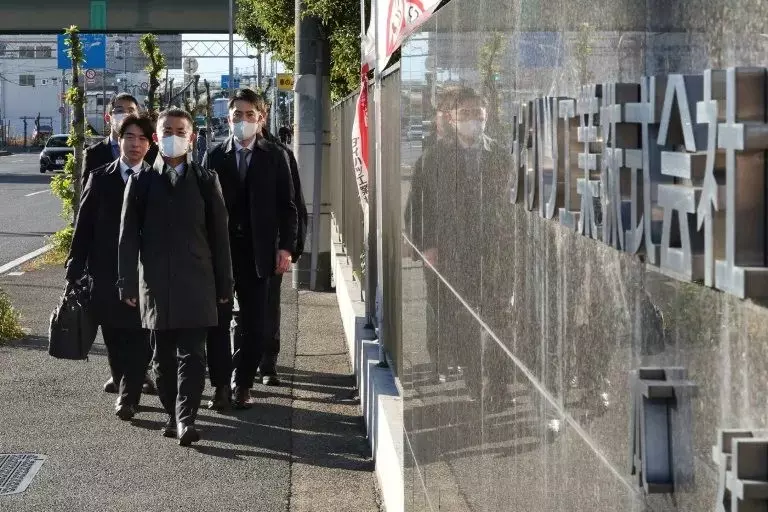The Japanese Ministry of Land, Infrastructure, Transport and Tourism carried out a raid on Thursday morning at Daihatsu Motor’s headquarters, which is currently involved in a scandal.
The Ministry of Land, Infrastructure, Transport, and Tourism is investigating the nature of the misconduct that took place in Daihatsu’s product testing process. This action was initiated after an independent investigation exposed safety and testing fraud issues within the Daihatsu brand.

The Japanese Ministry of Land, Infrastructure, Transport and Tourism carried out a raid on Thursday morning at Daihatsu Motor’s headquarters, which is currently involved in a scandal.
The Ministry is also planning to take administrative measures, including the revocation of certifications for certain car models if it is determined that these irregularities were intentional.
A report released by Daihatsu’s independent council on Wednesday revealed that misconduct has occurred over a period of more than three decades since 1989. The council identified additional instances of irregularities in 25 vehicle safety and emission tests. In total, 174 cases were uncovered, affecting 28 car models that are currently being produced and developed in Japan.
The Ministry of Land, Infrastructure, Transport, and Tourism decided to investigate the origins of Daihatsu’s misconduct after suspicions arose that inappropriate testing activities might have been widespread within the company. Officials have opted to conduct on-site investigations under the Road Transport Vehicle Act. According to this law, the government has the authority to carry out on-site inspections on licensed automobile manufacturers.
Automobile manufacturers are required to obtain model certification before they can mass-produce and sell specific car models and components in Japan. Certification is granted after the model passes the screening process of the Ministry of Land, Infrastructure, Transport, and Tourism, ensuring that it meets safety requirements.
The 2017 amendment to the Road Transport Vehicle Act empowered the government to revoke model certifications if they were improperly issued. This provision was first enforced in March 2022, when certification for engines used in Hino Motors’ vehicles was revoked after the discovery of falsification in the Japanese automaker’s emission and fuel efficiency data.
The report by the independent council categorized the 174 instances of misconduct into three groups: improper handling or adjustment, falsification of records, and falsification of original data. It concluded that all irregularities were intentional.
In the case of falsification of records, crash test results from the passenger side were recorded and used for the driver’s side. The person in charge of the test stated that there wasn’t enough time to conduct the driver’s side test, so the testers decided to manipulate the records under the belief that “There is no significant difference in performance,” as stated in the report.
Through on-site inspections, the Ministry of Land, Infrastructure, Transport, and Tourism aims to gather evidence regarding the cited instances of misconduct by analyzing relevant test documents and conducting interviews with those involved.
It also aims to investigate the involvement of managers and uncover the reasons behind the widespread and persistent irregularities.
A spokesperson for Daihatsu stated on Thursday, “We are fully aware that we have betrayed the trust of our customers.” “We are prepared to fully cooperate with the investigation conducted by the Ministry of Land, Infrastructure, Transport, and Tourism.”
The Ministry also plans to independently verify the safety and environmental impact of the 28 Daihatsu car models currently on sale or under development in order to ensure compliance with standards.
The Ministry’s inspection is expected to be extensive and may take a considerable amount of time. This makes it difficult for Daihatsu to estimate when it will be able to return to pre-scandal production levels.











































